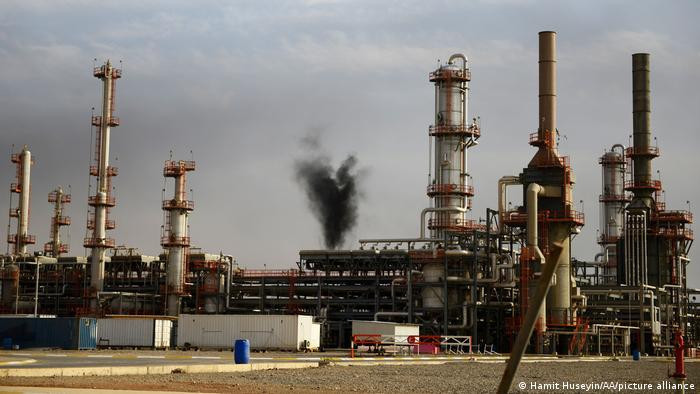Brent crude prices fluctuated as investors monitored the progress of pressure operations to approve an agreement on the debt ceiling in the United States aimed at avoiding default on its debts.
Global benchmark crude prices fell, trading below $77 a barrel, after closing up 0.2% on Monday.
The White House and Republican leaders in Congress stepped up their efforts to urge members of the legislature to support the debt ceiling agreement, and President Joe Biden and House Speaker Kevin McCarthy expressed confidence in Congress' ratification of the agreement.
An American agreement to raise the debt ceiling.. What are its most prominent features?
Oil prices are still down by about 10% since the beginning of this year, due to pressures on demand expectations as a result of the slowdown in economic recovery in China following the lifting of the zero Covid policy on the one hand, and the austerity campaign in monetary policy pursued by the Federal Reserve on the other.
Moreover, Russia's oil supply remains strong, even after the country announced its intention to cut production.
Investors are looking forward to more clues about the direction of supply from the OPEC+ alliance before it meets on June 3-4 to set production policy. Saudi Arabia and Russia have recently given conflicting signals about the possibility of the alliance changing the level of production.
Amid widespread expectations that appear to bet on easing the risk of US debt default, the question is what comes next for a more sustainable rise in oil prices, said Yap Jun Rong, market strategist at IG Asia. He added that the weak economic outlook and the increase in Russian oil production put limits on the possibility of higher prices.







































